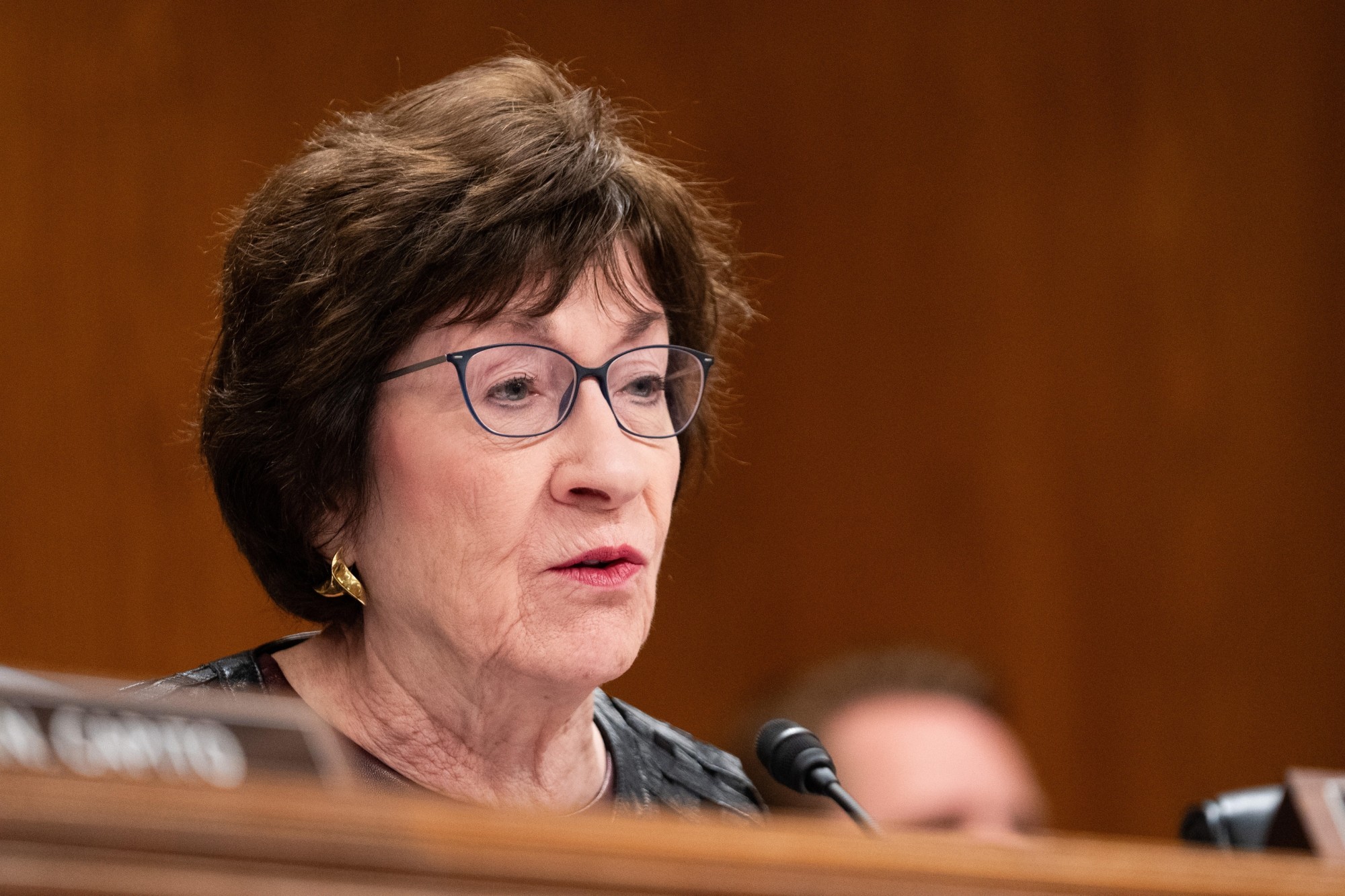Politics
Susan Collins’ Path to Re-Election Worsens After Trump Defiance
By Jake Beardslee · July 11, 2025

Senator Susan Collins of Maine may now be approaching her toughest re-election battle yet. The moderate Republican cast a critical “no” vote on Donald Trump’s massive domestic policy bill last week—legislation packed with tax cuts and rollbacks to safety net programs. While her vote forced Vice President J.D. Vance to break a tie, Trump remained uncharacteristically silent about her defection. That silence, political observers say, might signal real trouble for Collins.
Though her dissent didn’t derail the legislation, which passed with Vance’s tie-breaking vote, it added fuel to her already declining popularity at home. According to Morning Consult, Collins’ net approval rating dropped 12 percentage points between Q1 and Q2 of this year, the steepest fall among U.S. senators. Her disapproval rating now sits at 51%.
Collins is the only Republican senator up for re-election in a state won by Democratic presidential nominee Kamala Harris in 2024. So far, Democrats haven’t landed on a challenger, but Governor Janet Mills remains a top contender. Mills, a 77-year-old former prosecutor, is known for her clashes with Trump over transgender athlete policies and could pose a formidable threat.
Collins’ record has long balanced cautious dissent with party loyalty. During Trump’s first term, she voted with him 67% of the time, according to FiveThirtyEight. She supported nearly all his Cabinet picks and Supreme Court nominees, though she opposed Kash Patel’s nomination to head the FBI. This vote against the domestic package, however, came after Collins tried—and failed—to secure carve-outs for rural hospitals.
The bill itself remains deeply unpopular in Maine. A University of New Hampshire poll found that 58% of voters opposed it, including 72% of independents. About 34,000 Mainers may lose healthcare access due to its provisions, and multiple solar and hospital projects are already in limbo.
Despite Collins’ rationale, the backlash has been fierce. UNH polling shows 71% of Maine voters—57% of them Republicans—believe this should be her final term. Her favorability rating stands at just 12%, with 58% viewing her unfavorably. Even among Republicans, she’s underwater, with only 19% favorable versus 43% unfavorable.
Nevertheless, Collins retains considerable political heft. She chairs the influential Appropriations Committee and has consistently won elections by at least 8 points—even in a state that hasn’t voted Republican for president since 1988. Her campaign warchest is currently modest at $3 million, but she raised $31 million during her 2020 run. GOP leadership is expected to rally behind her again.
Still, Democrats face challenges of their own. They are defending vulnerable seats in several swing states and would need to net four new seats to regain Senate control—an uphill climb. For now, Collins is stuck in a no-man’s-land: shunned by Democrats, unsupported by many Republicans, and hounded by the consequences of a bill she opposed but couldn’t stop.